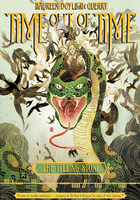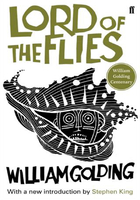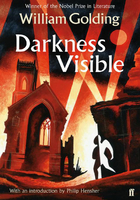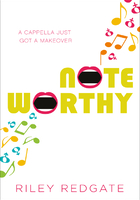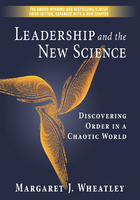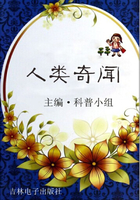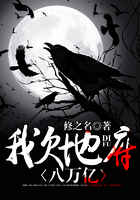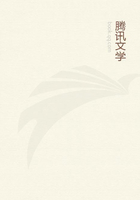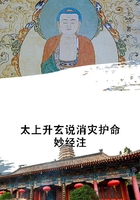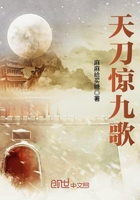The Collective Farm
In mid-August 1993 I was ready to start my year of fieldwork. I had bought an old Volvo in Sweden, ordinary and reliable, or at least I thought of it as ordinary. On the collective farm, of course, it looked like an ambassadorial limousine amongst the few rusty old Ladas. I had everything I thought I could possibly need, most importantly my new Mac laptop and a camera. I didn't bring a mobile phone, and, of course, there was no Internet on the collective farm, though I did have an early email account in England. I brought, instead, a little travel printer, and many rolls of printer paper. I had medical supplies, a down duvet, several pillows, books, clothes, pens, and notebooks.
I travelled across on the ferry to Tallinn, Estonia's capital, from Stockholm, as I had done many times before. I drove straight down to the collective farm. It was a sunny day, with a strange clarity of light. I drove west from Tallinn, past the small settlements of Keila, then Rummu, and a ruined monastery. I remember birds singing, and crossing a stream of brown water. The light shimmered strangely-there were mirages over the pockmarked tarmac. A rooster crowed in the silence between the few thundering lorries on the otherwise empty road. There was a hallucinatory quality to that drive. The loose flap of a lorry canvas in front of me seemed like an ominous message, the landscape drenched with meaning and expectation. I see now, so many years later, how alone I was, and how apprehensive.
The land on both sides of the narrow road into the peninsula was marshy. You could see that this had once been an island, or even several islands. I drove past some old grey houses with frayed thatched roofs and shoddy white brick additions, past the abandoned Soviet watchtower and barrier, now permanently propped open. I stopped at the church, built where the marsh ended. In the spring it had been locked up, in a state of disrepair. Now it was open, with newly painted grey benches, broad flagstones on the floor, spare and Lutheran. The guest book on the table by the door was almost full-there were sixty pages of names, most of them Swedish, the rest Finnish. The day before I arrived the Uppsala University theological faculty had visited. Next to the guest book was a pile of contemporary Swedish church tracts, perhaps left by the theological students. I looked at the titles: Teach Us to Pray, Take Us into Your Joy and, slightly glib in this harsh historical context, You Will Not Abandon Me.
Instead of driving towards Pürksi, the village where I was to live, I took another road, towards the sea, delaying the moment of arrival. It was a wide dirt road, and I drove on for miles. Outside each farm stood a wooden stand for the milk cans, though the dairy collections, I knew, had ceased for the time being, along with so much else. At the end of the road, by the sea, was a single abandoned white brick building, perhaps a family house, in that Soviet state of dilapidation that could signify incompletion or abandonment, or perhaps both. An open door was banging in the wind, and you could hear the waves. I wandered down to the beach. There were wheel tracks in the sand, but no one was there. Some round boulders in the grey sea were reminiscent of refugees, bedraggled families looking west across the water. I looked at them for a long time, only half aware of my reluctance to enter the village of my field site, meet my informants, and commit myself to my fieldwork, and to this year. Eventually I picked myself up and left, a subconscious mantra ringing in my ears: Now is the time for all good men to come to the aid of the party. Where did that come from? It was running endlessly on a loop through my mind. I didn't know then how safe I would soon feel-at that point I was anxious, not only about meeting people, but also about finding my way in the new field of post-Soviet anthropology.
Anthropological fieldwork is unlike any other occupation. You live and work alongside your informants in a process called "participant observation"-you participate, observe, record, compare, and analyse. As in psychoanalysis, research is often grounded in the seemingly inconsequential, in habitual references and jokes, revealing fragments of the worldview of the informants. It is generally assumed that the underlying worldview is a coherent imaginary universe, with its own internal logic, though "fieldwork at home" or "near at home," with people who largely share our cosmology, usually addresses more specific issues, in my case the questions of history and memory.
I am sorry to say that I didn't have much of an idea of what fieldwork was before I started it. My department at UCL was one of the best in the United Kingdom, and, probably, along with Chicago, in the world. We had had a great deal of theoretical training from famous experts in the field; we read, wrote, and discussed voraciously, but we had almost no actual training in field -technique-the unstated thinking was, I suspect, that making it on your own enhanced the experience and the process of understanding and analysing the culture. I remember the traditional annual seminar for all the prospective PhD students in the presence of the whole department. We presented our fieldwork proposals, one by one. The Africanists were always particularly tough, and one student proposed to study diamond smuggling in Sierra Leone. This was before the term "blood diamonds" had been coined, but the extreme brutality associated with the diamond trade was well known. There was a thoughtful silence after he finished reading his lengthy and theoretically rich proposal, after which the chairman of the department asked, "And how do you propose to survive your fieldwork?" Everyone laughed. Now I think of that proposal, and that moment, as capturing the spirit of the department. We were on our own, deliberately so.
I was lucky, however, in my supervisor, Daniel Miller, an already eminent, now-famous anthropologist, and an energetic and encouraging correspondent. "You seek to comprehend both yourself, your own society, and the society you are studying in one movement," he wrote to me. "Doing fieldwork is also a process of gaining maturity and coming to a sort of bearable but rather stronger form of self-consciousness. At least that was my experience." And so it turned out for me. The process of cultural analysis was not dissimilar from the process of my psychoanalysis the years before my fieldwork, only more intense.
The road was much as it had been on my first visit in the spring. I passed the old shop on the right, and some white brick blocks of flats on the left, and arrived, finally, at the central square. "Square" is perhaps too urban a term for that dusty, long rectangle delineated by the school on the short side, the rusty workshops at the far end, the collective farm culture hall on the right, and the municipal offices on the left. I parked the car and cautiously stepped out. The square was empty. The glass in the door of the shoddy white brick culture hall was broken, and inside the bare concrete staircase was chipped and dusty. Behind were the collective farm apartment blocks, long two-and three-storey blocks housing some three hundred people. It was very quiet.
As instructed by letter, I went to report to the mayor, whom I knew by name as ülo Kalm. He was seated at a modern desk opposite his assistant, tall and thin, dark and lively, and much younger than I had expected. They greeted me briefly, and immediately started looking in drawers for the key to the visitors' flat, the so-called hotel where I was to stay. The key was missing, so they started to call people to find out where it was. They each had a telephone, the mayor a Swedish modern one, his assistant an old Soviet one, and both phones were soon ringing incessantly with news of the key. The Estonian voices from the telephones were loud and clear, and the mayor and his assistant consulted each other constantly as they spoke, creating a strangely cinematic atmosphere. After a number of such telephone conversations, sadly still difficult for me to follow despite my lessons in Estonian, the mayor went off in person in search of the key. Silence descended; strangely even the telephone calls instantly ceased. I felt a little dazed. The assistant got me a cup of black coffee with eight chocolates lined up on the saucer. I sat in the peaceful silence, drinking the coffee, absent-mindedly eating the dry chocolates one by one. ülo eventually came back without they key but with the information that the woman who had it would be back on the four o'clock bus from Haapsalu. He smiled encouragingly, and I left, saying I would come back later.
Diagonally opposite the culture house stood the dilapidated wooden manor house of Birkas, which had been in Swedish ownership before the First World War. There was no relationship between the Swedish-speaking peasants on the peninsula and the aristocratic owners of the manor house and estate. A few of the landowners in Estonia were Swedish, but most of them were Baltic German. Not many Estonians, many of them former serfs, or Estonian Swedes, owned land before independence. The baronial estates were first attacked in the 1905 revolution. In the post-independence land reform of 1920 they were broken up, and the land was parcelled out to returning soldiers.
That same year, the manor house of Birkas was turned into a boarding school for Estonian Swedish young people, to teach them new farming methods, to help them become "capable, moral, and forward-looking individuals," and to preserve the Swedish culture and language. Teachers and villagers restored the house themselves, with the help of the students. In the first year, the school took in thirteen boys and twenty-six girls. All in all, nearly six hundred students were educated at Birkas, more than half of them girls. What previously had been islands of Swedishness-small, isolated rural communities-became a self-conscious minority. The students were taught what was known as "Sweden Swedish," but were also encouraged to appreciate the "cultural value" of their own dialects. Soon a steady stream of Swedish visitors, journalists, filmmakers, and representatives of charitable societies visited the Swedish communities in Estonia: a Swedish cultural revival was underway.
Restoring the manor from the brutal troop occupation in the First World War had been hard-cupboards had been used as privies, banisters had been broken up and burnt as firewood, and the floors destroyed by heavy boots. During the latter part of the Second World War, the house was occupied again, and again virtually ruined, and it was only partially renovated in the Soviet era. After collectivisation in 1949, parts of it housed the collective farm office, until the new administrative block was built nearby. Then the manor house was locked up, and left to deteriorate.
Even that first day, as I walked around waiting for the key, I could see that there was something slightly odd about the spatial relationship between the culture hall, the school, the new blocks of flats, and the old manor house. All the modern buildings were placed in relation to one another: the school stood at a right angle to the culture hall, as did the blocks of flats, which also formed smaller squares amongst themselves. The manor house, on the other hand, stood at an indeterminate and slightly worrying angle to the rest. I eventually realised that what looked like the front of the manor-what had in effect become the front-must originally have been the back. The old drive was still just discernible. The front had fallen into disuse, since all the new blocks of flats were built on the fields behind it, and the house had swivelled on its axis. Facing the old front were a few acres of forgotten parkland, now overgrown and irrelevant. It was under renovation during my year in the village, a renovation that was to prove slow and fitful as the village ran out of money, but the old front was destined to remain the back.
It was mid-August, and yet it felt like autumn. The leaves were red and yellow, and it was already cold. That first evening I walked through the old village of ?sterby, and on to the sea. There was a smell of apples in the air, and something harsh and eastern European; I didn't then know what it was. A woman in a shawl was cutting wood on an ancient electrical saw, and two boys were fencing with sticks next to her. A roe deer jumped into the woods, and a crackly radio somewhere played a piece of classical music. On the way home I met a young woman with a child and an older couple. The man swayed towards me, arms slightly open, saying something quickly that I didn't understand. He stood near me, smiling, not very tall, blond, blue eyed, a bit washed out. Drunk. The older woman smiled; the younger one looked at me indifferently. I smiled cautiously and walked on.
It was cold in the visitors' flat. Now, twenty years later, I remember the cold, the narrow bed in my room, the dirt. The cold and dirt were equally haunting; I shrank into myself. I was there alone. Then, my obsessive mantra-Now is the time for all good men to come to the aid of the party-playing in my head, I heated water on the stove, and cleaned the room. Gripped by a sense of repulsion, I also cleaned the communal kitchen, the bathroom, and the corridor. The flat had four bedrooms along a wide corridor. It was pleasantly spacious, but dirty. There were hundreds, perhaps thousands, of dead flies in the corridor. I swept them all up, and threw them out of the window. I cooked porridge in an aluminium pan for supper, and later heated water in the same saucepan for tea and for washing. There was no hot water and no heating. I remember the contrast between the Soviet rooms and the western cleaning materials I had brought-a harsh mix. The flat had for so long been cleaned with only cold water, with the black old rag still stored under the sink, that the scent of the new cleaning fluids felt overwhelming and wrong, a strange culture clash.
Earlier I had bought some supplies from the shop. In careful Estonian, I asked for milk. The woman behind the counter lifted up a steel bucket from under the counter. She took an empty beer bottle from a crate, rinsed it in cold water, and, with the help of a scoop and a metal cylinder, filled it with milk. With an impassive face, she handed me the bottle. Three people, eating vanilla ice cream, watched me in silence. I smiled, more uncertainly than I would have wished, and left.
I soon learnt that the harsh pollution in the village was from the brown coal. The coal, imported from Poland, was burnt in the rusty old furnace by the workshops. It left a faint yellow cloud hovering over the square, and an acrid taste in the mouth. As it turned out, the cloud of pollution wouldn't last long: the furnace broke down shortly after my arrival, and in any event there was no more subsidised Polish coal. After that, there was only intermittent heating, and a little lukewarm water once a week or so, for the rest of the year.
There was a Peace Corps volunteer in the village, Leigh, from Birmingham, Alabama. I think she may have been a nurse originally, but I am not sure about that. I do remember her aspiration: she wanted to be a massage therapist in Boulder, Colorado. She was enigmatic and heavy, with straight dark hair and green slightly slanted eyes. When I arrived in August she was still away, but I had met her before, during my first visit in the spring. She was there to teach English, to show the Estonian English teachers "new methods," and to disseminate cheerful Peace Corps materials to replace the (equally cheerful, and actually not altogether dissimilar) old Soviet schoolbooks.
On my first visit, she had taken me on a tour, showing me the tiny private cooperative shop, at that time still only a primitive kiosk, selling tinned food, cigarettes, chocolate, and shampoo. Two small brown fish flapped about on an orange plastic plate on the counter. She showed me the culture hall and the English schoolroom, which she had decorated with American posters. There was a photograph of Maryland in snow, captioned, "The snow came down last night like moths / Burned on the moon; it fell till dawn, / Covered the town with simple cloths"; a sunrise in a national park in Virginia titled, "… comes again. The welcome morning with its rays of peace"; and New York skyscrapers, with "Lay me on an anvil, O God… Let me be the great nail holding a skyscraper through blue nights into white stars." The contrast with the flat, prosaic landscape outside could hardly have been greater.
Of course this was only four years after the end of the cold war. As we were walking Leigh told me that the energetic and intellectual young history teacher, Ivar, whom I had yet to meet, had uncharacteristically gotten drunk one evening and revealed that he was anti-American. I was not surprised. Laine, the blond and sophisticated headmistress, looking at me knowingly, European to European, had already intimated how nice it would be to have somebody teaching "English English" rather than "American English."
The third occupant of the communal flat that year was Timo, a young teacher who had exchanged compulsory military service for a stint of teaching in this remote region-it was almost impossible to attract young teachers to the area.
Leigh made dinner for us the first evening we were all together, a pizza cobbled together from what she could find. Timo kept lapsing into silence, staring out the window, bewildered and depressed at finding himself committed to teaching for a year in this primitive place. I cautiously began the process of participant observation with him, whilst he, I soon found out, really only wanted to talk about the contemporary European music scene-in that sense, we were a disappointment to each other.
Leigh talked, in a heavy southern drawl that lent drama and interest to her discourse, about how many Peace Corps volunteers had left Estonia because they had felt so discouraged and alone, in contrast to the pampered volunteers in Russia, Latvia, and Lithuania. Estonians didn't engage with the volunteers, she said, and any attempt on their part to get to know people failed miserably. Her students had told her that unless you have a specific reason to do so, it's contrived to smile at people you meet on the street. She said, also, that she had cried almost every day the previous year, and had been politely ignored most of the time. A volunteer friend on another remote collective farm who had assumed that his Estonian colleagues disliked him, after a solitary year of no invitations and little conversation, was surprised to find two of the women teachers in tears on the day he left, in desperation, to teach in Tallinn instead. When he asked why they were crying, they told him that they had "gotten used to him" by now. Leigh smiled her joyless smile. Timo sighed and stared out the now-dark window. I thought of the prospective informants in the shop, watching me in silence as I carefully asked for milk. Our first evening together was over.

